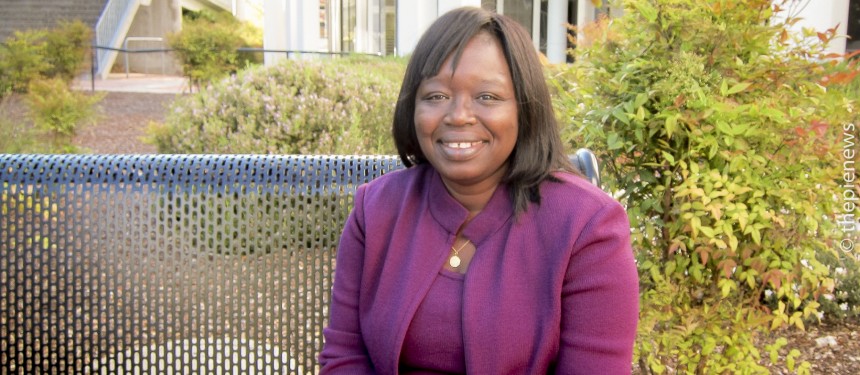FA: As president and chair of the board of directors of NAFSA I am a volunteer leader. My primary role is to work with the association and its members in terms of strategic planning and ensure that our field of international education is as vibrant as it can be.
My day job, as I call it, is Assistant Vice President of Campus Life at American University. In that capacity I am in charge of international and intercultural programmes and I oversee the international students’ scholar services office along with our centre for diversity and inclusion and several other administrative units. I’ve been at the same university for the past 21 years.
The PIE: So you’re not directly involved in student recruitment?
FA: Overseeing the international students’ scholar services, I work in very close partnership with the university as it looks at its international student recruitment, retention and experience as well as how we bring in international faculty and research scholars to the campus.
“Close to 70% of our undergraduate students study abroad for at least a semester”
The PIE: Where does American University lie on the landscape of inbound and outbound mobility?
FA: Our inbound numbers are strong for the size of our institution. We are a research-intensive private institution with a total enrolment of 12,000 students and out of that we have about 1,200 to 1,300 international students on our campus from 137 countries. Quite a diverse group of students.
In terms of outbound, close to 70% of our undergraduate students study abroad for at least a semester. Our study abroad office does a very good job of being able to convey to students and particularly to faculty and the academic units the value of an international education.
The PIE: What’s the key to increasing outbound mobility?
FA: The more it’s integrated into the curriculum, the more I think students just see it as a natural part of getting a holistic education. Transferability of credits and making sure that there’s portability of financial aid are also elements that are really crucial to education abroad for our students.
This is a generation of students that wishes to be challenged intellectually and the more we can make the education abroad component a strong part of academic learning, the more we’re able to also convince faculty of the merit of it.
The PIE: What trends are you seeing in US outbound mobility?
FA: We’re starting to see growth in what I would call non-traditional study abroad programmes – particularly around students who want to go to other parts of the world to understand critical issues of our time from communities that are different from theirs and be able to reflect on that in a way that is different.
“The more we can make the education abroad component a strong part of academic learning, the more we’re able to also convince faculty of the merit of it”
In that sense there’s a growth of non-credit education abroad. I think much of that is tied to a generation that’s quite curious about how local issues are having a global impact. This also provides us an opportunity to reach other destinations because the social justice issues that students are interested in tend to be in the developing world.
The PIE: You come from a private business background, how do you think that has benefited you in your position in academia?
FA: I often say that I come at this from an unconventional background in that I started more in the corporate world before getting into academia. I initially started in finance and accounting. But then through my time in the field I’ve supplemented that with a background in organisational development and as a sociologist looking at this from the perspective of how structures work, how organisations function, the role of culture, etc.
This combination of skill sets has benefitted me quite a bit in an environment and at a time in international education where you really need to be able to make a compelling case for the value of international education with various stakeholders. From vice-chancellors, to governments to the folks who are in charge of the purse strings, your CFOs, to then also making the case with academics.
The PIE: Let’s talk about your upbringing. You were born in Mali, moved to Liberia, and then?
FA: From Liberia I came to the US, and then from the US I moved to Kenya, from Kenya to Rwanda and then I came back to the States for college.
When I graduated I went and worked in Senegal and then came back to the States. I often say that my background is probably what today you would say is more the norm. At the time, I think it was somewhat unique and frankly I feel privileged that I was able to grow up overseas. [more>]
Related articles




4 Responses to Fanta Aw, President, NAFSA